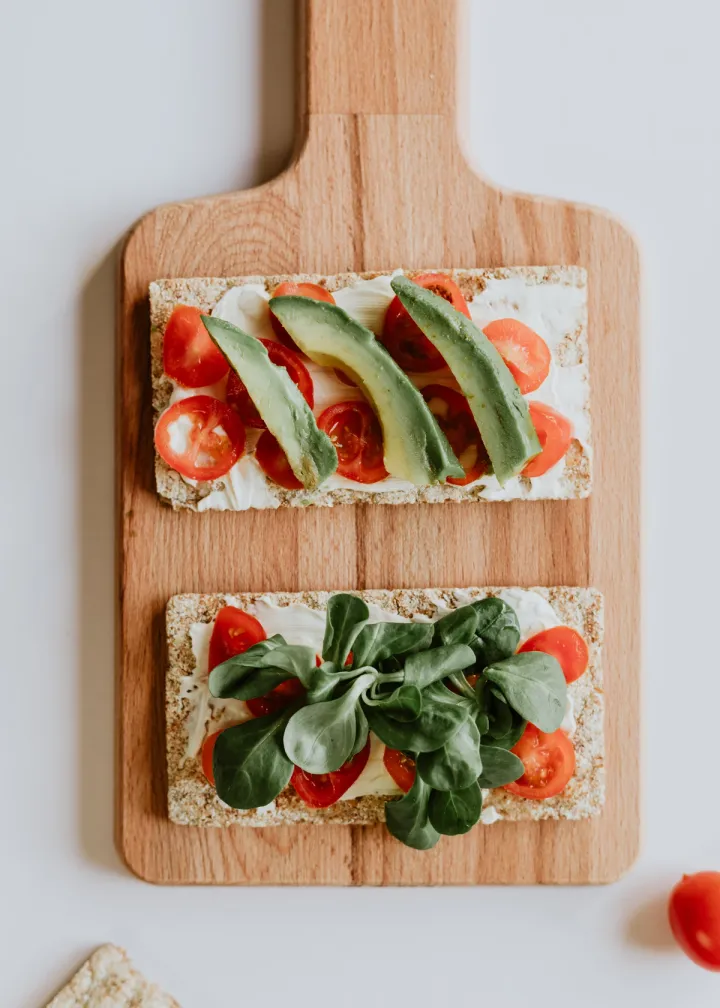
The Best Office Snacks to Keep You Productive Throughout Your Workday
A dietitian shares energising bites for when the 3 pm slump hits.
Who doesn’t love an office snack? When it gets to that 3 pm mark and you notice your concentration dropping off, naturally you might reach for a snack as a pick-me-up – hello chocolate. But is snacking a healthy habit to get into or is it just adding unnecessary calories?
Let’s go through whether we should be snacking, some tips for making healthier snack choices, and some delicious snack ideas for your next office day.
Is snacking good for you?
Snacking can be a very healthy habit, but that doesn’t mean they’re essential. Some people prefer to simply have three more substantial meals each day. Others do much better with having three smaller meals plus 2-3 snacks. Some of the benefits of snacking include:
- Manage appetite – including 2-3 nourishing snacks can keep you satisfied between meals. This often prevents over-eating at main meals, as you aren’t ravenous by the time dinner rolls around.
- Maintain energy levels and concentration – nourishing snacks between meals can keep blood sugar levels stable which helps to manage energy levels and concentration across the day.
- Generally better for gut symptoms – if you experience gut symptoms such as reflux, nausea, bloating, diarrhoea, or constipation then aiming for smaller meals and snacks will likely work better for symptom management.
- Help with refuelling – if you’re exercising and your next meal is more than 30-60 minutes away, including a high-protein snack is a great way to optimise recovery.
The key component of whether snacking is a healthy habit for you, is the quality of the snacks. There is a big difference between snacking on a bowl of chips (as tasty as they may be!) versus some hummus with veggie sticks.
Tips for healthy snacking
As mentioned, quality is key when it comes to healthy snacking. Below is the magic formula for building a healthy snack that will help keep you energised and productive:
- Protein – including a protein source with snacks helps to keep you fuller for longer as well as preserve lean muscle mass (particularly important if you’re trying to adjust body composition, are quite active or going through perimenopause). Protein foods include fish, chicken, eggs, milk, yoghurt, cheese, legumes, and soy products.
- Carbohydrate – including a source of quality carbohydrates with snacks helps to improve/maintain energy levels, concentration, and performance. Carbohydrate food sources include wholegrain breads/cereals, rolled oats, fruit, brown/black rice, barley, quinoa, wholegrain crackers, and legumes.
- Colour – including some colourful snacks is important. This provides us with a variety of micronutrients as well as fibre to keep us feeling fuller for longer and keep our gut happy. This mostly refers to fruits and vegetables, but also includes things like herbs and spices.
- Healthy fats – including a source of healthy fats with snacks will help satisfy you for longer, as fat is a very satiating nutrient. Examples of healthy fats include nuts, seeds, extra virgin olive oil, soy products, avocado and oily fish (salmon, sardines, mackerel).
What are some healthy office snacks to eat?
Now that we know the benefits of snacking and how to build a healthy snack, let’s go through our top 15 office snacks to keep you energised and productive! We’ve included options you can keep in your desk drawer, and options you can easily assemble or prepare ahead of time.
- Protein/nut bar and berries – we love Fodbods and Carman’s.
- Vitaweets with cottage cheese, tomato, and basil.
- Mixed berry smoothie with soy milk and nut butter.
- Chia pudding with yoghurt, apple, and cinnamon.
- A packet of roasted chickpeas/fava beans and a punnet of cherry tomatoes.
- Mini hummus pot with a punnet of baby cucumbers/carrots.
- Vitaweets or corn thins with peanut butter, banana, and cinnamon.
- Piece of fruit and a handful (30g) of mixed nuts.
- Mini wholegrain wrap with smoked salmon, avocado, and rocket.
- High protein yoghurt with passionfruit and pepitas.
- Seeded crackers and a tin of tuna.
- Nut/seed bites (such as Munchme) and an apple.
- Edamame beans (frozen and defrosted or roasted and ready to eat!)
- Mini tin of baked beans with or without a slice of wholegrain toast.
- A small packet of air-popped popcorn, a handful of nuts, and a kiwi fruit.
Chloe is an Accredited Practising Dietitian (APD), Advanced Sports Dietitian and founder of Verde Nutrition Co. You can follow her on Instagram here and at Verde Nutrition Co here.
This article is intended for informational purposes only and is not a substitute for individualised health advice. If you are concerned about your health and well-being, please speak to your GP, who will advise on the correct treatment plan. You can also call Lifeline 24/7 for mental health support on 13 11 14.
Enjoyed This?
Check out these delicious recipes to inspire your cooking.








